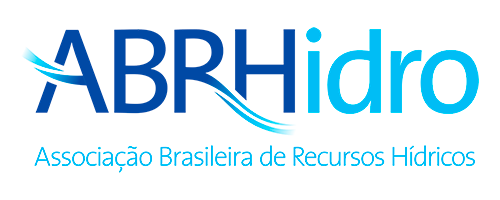9th International Symposium on Integrated Water Resources Management (IWRM) | 14th International Workshop on Statistical Hydrology (STAHY) | I EBHE - Encontro Brasileiro de Hidrologia Estatística
Data: 04/11/2024 à 07/11/2024
Local: Florianópolis-SC
Mais informações: https://www.abrhidro.org.br/iebhe
Tropical Multipurpose Freshwater Reservoir: Opportunities and Challenges for Nature-based Solutions Toward the COP30
Código
I-EBHE0149
Autores
Flavia Gonzaga Pileggi, Eduardo Mário Mendiondo
Tema
WG 2.4: Acceptance of Nature-based solutions & their implementation in guidelines
Resumo
Reservoirs are essential for water storage for consumption, irrigation, and energy generation, but they are also significant sources of greenhouse gas (GHG) emissions, such as methane and carbon dioxide, especially in tropical regions. The sustainable management of these reservoirs is crucial for reducing emissions and ensuring water security. In Brazil, a study by Silva et al. (2022), conducted through a FAPESP project, selected several reservoirs from the 22,000 monitored by the National Water Agency (ANA) via the National Dam Safety Information System (SNISB). The study identified deficiencies in dam oversight, suggesting the need for improvements in legislation and inspection practices. This research focuses on large reservoirs for energy purposes in the Amazon region and reservoirs for public water supply located in the interior of the state of São Paulo. These reservoirs were chosen due to their relevance and significant impact on both energy supply and water provision for large populations. The model used for calculation will be the G-res Tool, developed by the International Hydropower Association (IHA), which allows for detailed and accurate estimation of GHG emissions from hydroelectric reservoirs. Additionally, the research will analyze the work by Mendiondo (2024) in the project "Global Changes and Sustainable Adaptations with Water and Energy Viability and Economic Solvency," funded by FAPESP. This project aims to integrate knowledge on climate change, sustainable water resource management, and economic solutions to create effective adaptation and mitigation strategies. Based on the results, Nature-based Solutions (NbS) initiatives will be proposed, such as the creation of ecological corridors, reforestation of degraded areas around the reservoirs, and the implementation of sustainable agricultural practices in the watersheds. These initiatives aim to reduce GHG emissions, increase ecosystem resilience, and promote the sustainable development of local communities. These recommendations emphasize the integration of sustainable practices that enhance biodiversity, improve water quality, and ensure the resilience of local ecosystems. For existing reservoirs, NbS might include reforestation of surrounding areas, restoration of wetlands, and the creation of buffer zones to reduce sedimentation and pollution. For planned reservoirs, NbS involve designing with ecological considerations from the outset, such as maintaining natural water flow patterns, preserving critical habitats, and implementing fish passages to support aquatic life. These strategies aim to align reservoir management with broader environmental goals, such as climate change mitigation, biodiversity conservation, and sustainable development, thereby contributing to the global agenda set forth in COP30 and future environmental summits.

